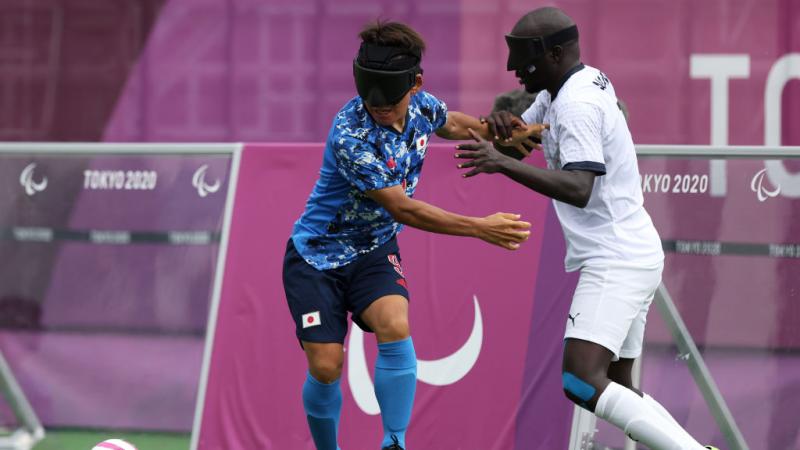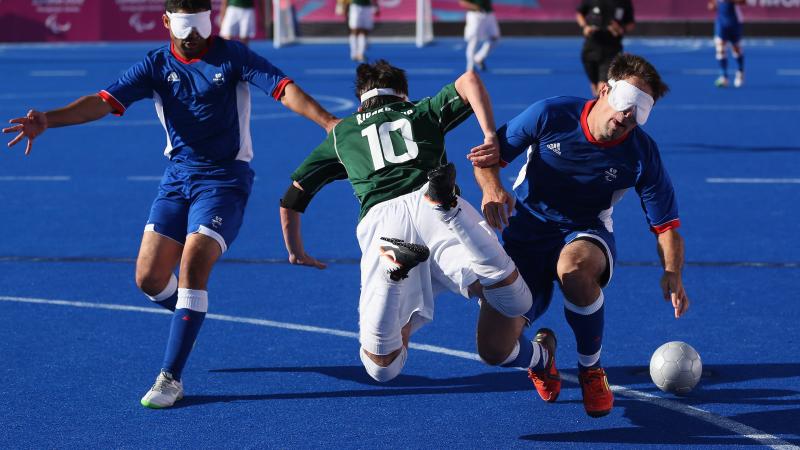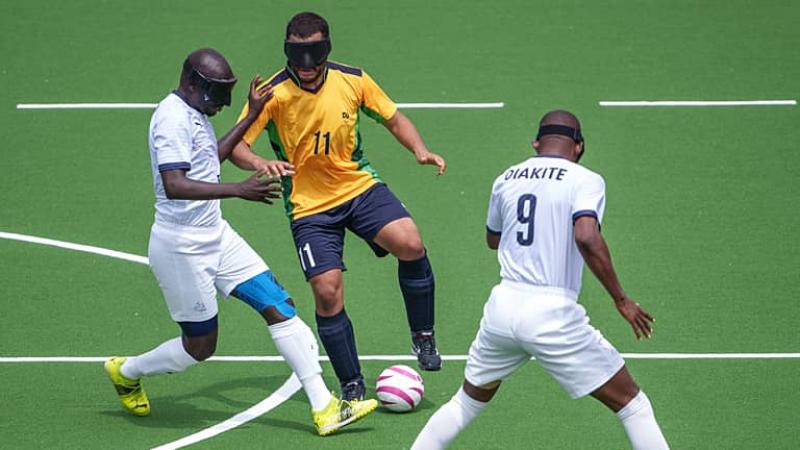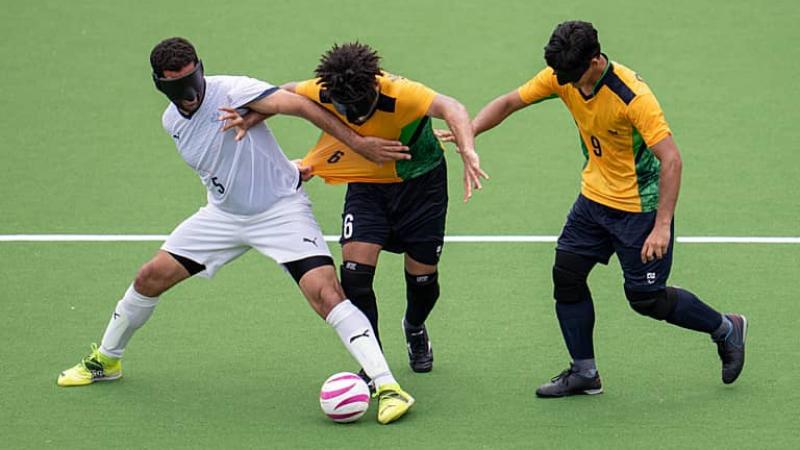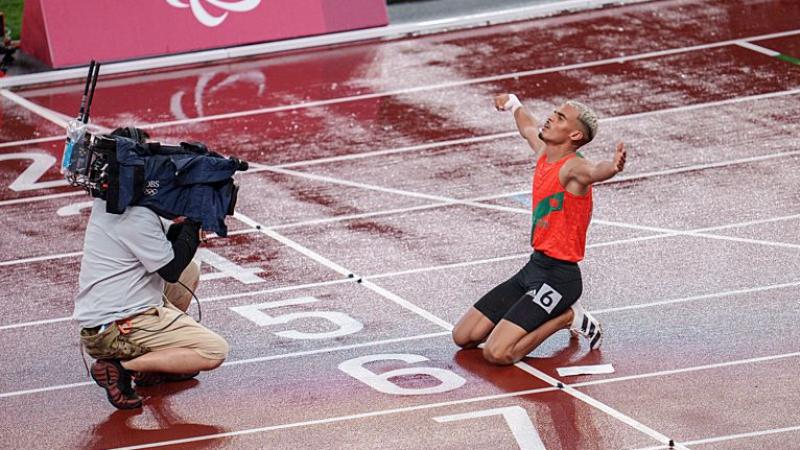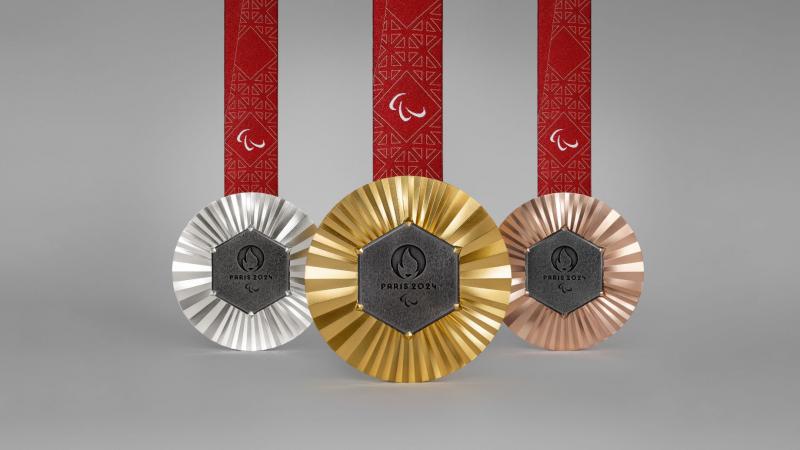Paris 2024: Tough training gives Babacar Niang his football focus
France’s blind football captain in peak condition for medal hopes at home Paralympic Games 19 Mar 2024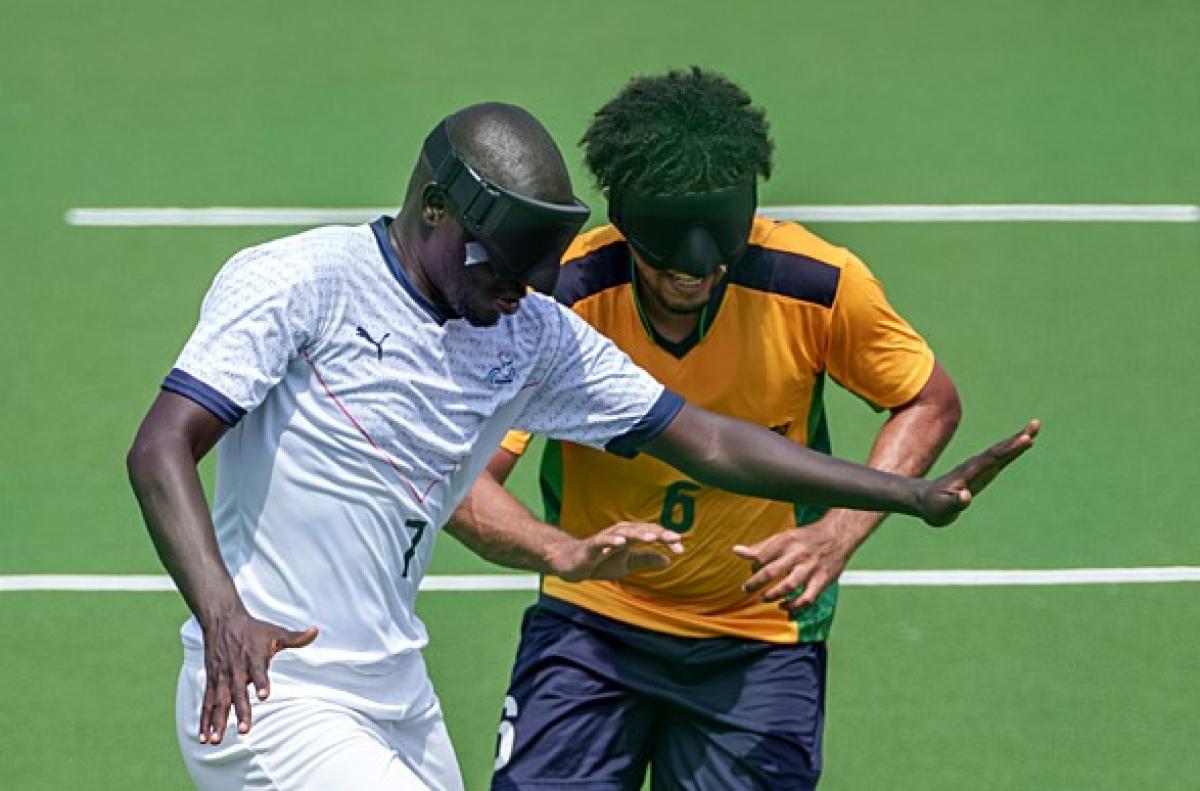
A teammate once said of France’s blind football captain Babacar Niang: “It’s like he has four lungs. He never stops.” And when you watch his all-action displays, you can see why.
So, what is his secret? “It’s the result of several factors,” he explains. “My coach tells me I have a natural commitment and determination and an above average ability to surpass myself.
“But this is not enough. I had to strengthen these strengths by redoubling my work during individual training, for my club or with the France team.”
Niang’s regime entails training five days a week: three days of individual physical training on top of two group training sessions. The individual sessions comprise two fitness sessions of an hour and a half and one weight-training session of one hour and 15 minutes.
“As an athlete, it is your duty to train in all aspects to be ready to face all the other national and international teams,” the 32-year-old said. “It also allows you to start and finish competitions better.”
“Psychologically, I don’t do any specific work. I leave [the dressing room] with my courage, my self-sacrifice and the love of the colours I wear.”
“For my diet, a nutritionist accompanies me. I don’t respect it to the letter, but I try to be careful [about] what I eat. A typical day for me starts most of the time at 8am. For breakfast, I have a coffee, bread with butter, scrambled eggs, all accompanied by a glass of fruit juice.”
From Senegal to Cécifoot
With such dedication, it’s no wonder Niang – who suffers from a congenital cataract, a disease that allows him to see only shapes – has boundless energy on the pitch, a characteristic that has drawn comparisons with N’Golo Kante. But the ‘Cécifoot’ star’s rangy build is more akin to another World Cup-winning France midfielder, Patrick Vieira. And like the former Arsenal star, Niang was born in Senegal.
It was there in west Africa, in 2008, that 17-year-old Babacar was introduced to blind football by the then-manager of the France national team. But it was when he moved to France to study sociology in 2014 that blind football really took off for Niang. He joined local club Toulouse, winning the Coupe de France in his first season (2015), and became an international three years later.
Having lost in the gold medal match at the London 2012 Paralympic Games, France failed to reach Rio 2016, but with Niang’s help they qualified for Tokyo 2020 as runners-up of the 2019 European Championships.
But things didn’t go to plan in Japan as France lost all three group games without scoring a single goal.
“The Tokyo Games were difficult for everyone, the staff and the whole team,” Niang said. “It kicked us all in the butt. It had a strong impact on me, but also greatly motivated me to do more, to do better, and I think that’s the case for the whole group.”
And do better they did, becoming European champions in 2022, just a year after the delayed Tokyo Games, with Niang – having taken over as captain – scoring the winning penalty in the final shootout against Turkey to secure their place at Paris 2024. “To help the team win the final is a great feeling, a great pride, and it validates all the work you have done, individually and collectively.
“In my preparation, especially at club level, the penalty is something I work on at the end of each training session.
“We worked hard until the European Championships, and we saw that we were capable of doing great things. It allowed us to show that French blind football was on the rise, it gave us confidence and remotivated us for the following competitions. We don't intend to stop there.”
D-day looms for France and Niang on home soil
Further evidence of France’s improvement came at the IBSA (International Blind Sports Federation) World Games in Birmingham, Great Britain, in August last year. Five-times Paralympic champions Brazil, who swept France aside 4-0 in Tokyo, needed a late winner to beat Niang and his team this time.
This has given him the confidence that France can claim a medal in Paris. “The Games being on home soil obviously increases the pressure a little, but I’m focused on my preparation, I respect the progress we’ve made and I’m on track to be at my peak on D-Day, that’s the main thing.”
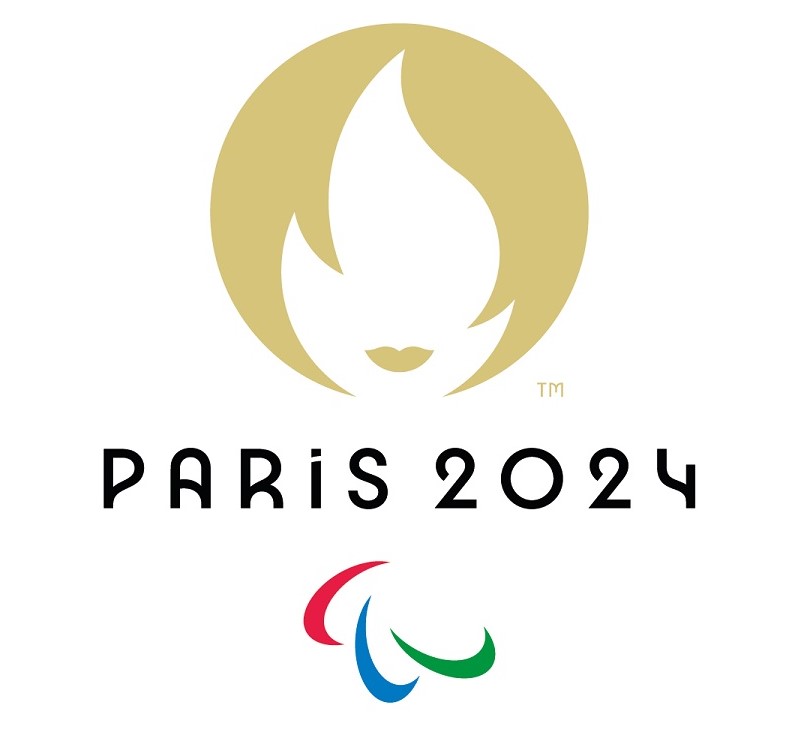
 Facebook
Facebook
 Instagram
Instagram
 Twitter
Twitter
 Youtube
Youtube
 TikTok
TikTok
 Newsletter Subscribe
Newsletter Subscribe





